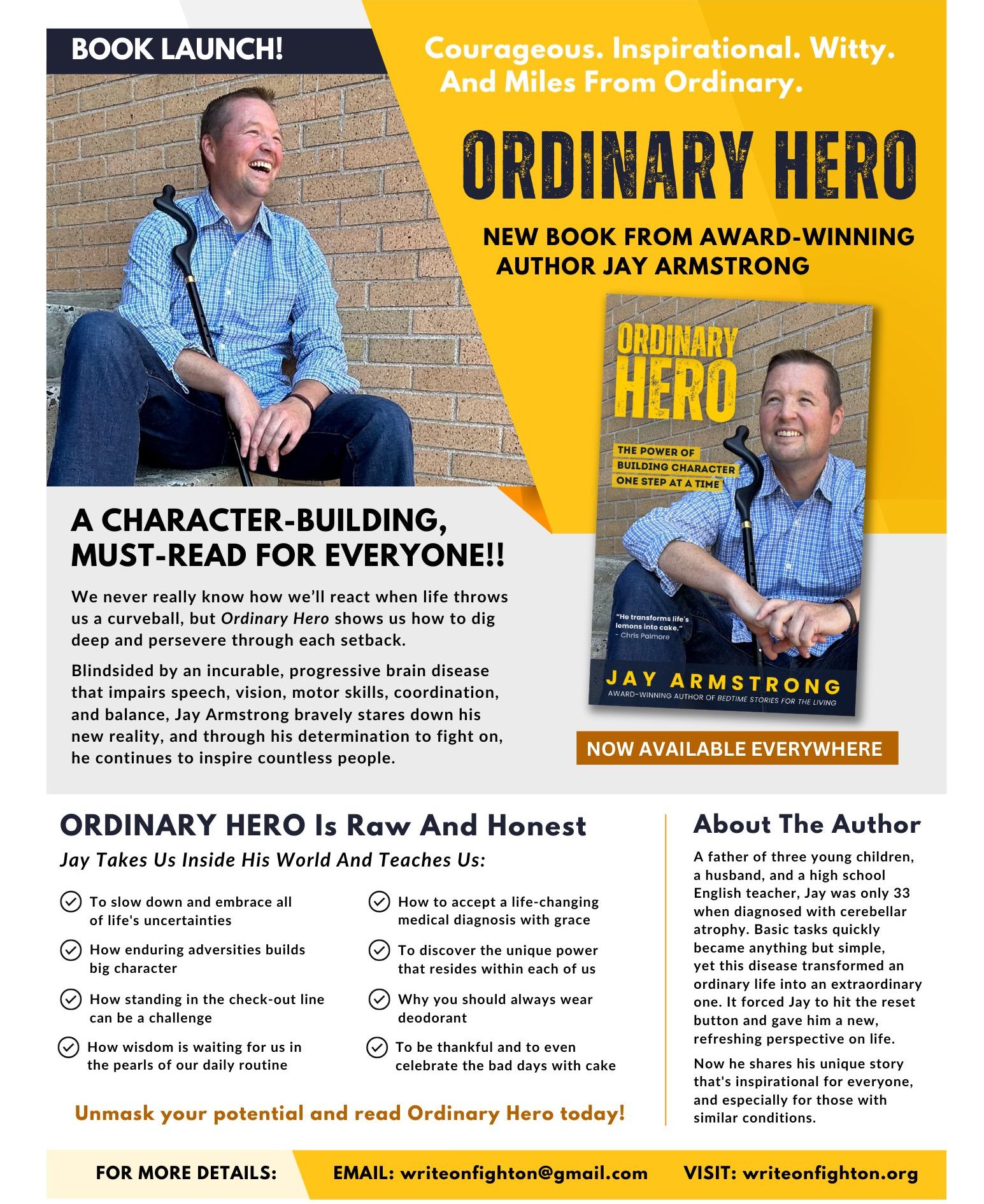How to Feel Grateful at 5:30 a.m. on a Monday
An hour before Cindy was to throw on the bedroom lights and verbally jostle the kids and I awake by harshly announcing: “Time to get up,” Maggie May was downstairs whimpering in her cage.
I laid in bed, staring at the ceiling, hoping maybe she’d whimper herself to a magical land of milk bones. But the whimpering turned louder. More frequent. And edged on crying. Her whimpering reminds me of how, when Cindy and I were rookie parents, we would lay in bed listening to one of our children cry in their crib. “Let them cry themselves to sleep,” was the advice we received. And so we did. Because, apparently, that’s what good parents do. So in the early morning hours, much like this morning, we stared at the ceiling, stone-hearted, fighting our instincts to get out of bed and rescue our child.
But this was different. This was a dog. A dog who will never ask for money or complain they’re bored or beg for the newest iPhone. And so I kicked off the sheets, rolled out of bed, slightly surprised how much more soft-hearted I am for the dog than I was for any of the three children.
I recently read my friend Chris Palmore’s book The Mechanics of Gratitude. My biggest takeaway from this slim yet powerful gratitude guide was that cultivating and sustaining transformational gratitude takes root when you’re disciplined enough to shift your focus to small, positive things–like birds chirping at sunrise, instead of lamenting negative things–like a whimpering dog at 5:30 a.m. on a Monday.
There’s something wonderfully suburban about standing in your front yard on a cold March morning in a winter coat and mesh shorts, on a pair of pale legs, watching your dog sniff wet grass, waving to your neighbor as they drag a trash can down their driveway to the curb.
One of my favorite poems about gratitude is called Gratitude by Mary Oliver. The poem begins with the question What did you notice? and ends with that statement, “So the gods shake us from our sleep.” Essentially, Oliver’s poem shows why we must wake each day– literally and figuratively–to witness the wonders, beauties, and curiosities of being alive.
A few years ago, long before Bedtime Stories for the Living was finished, I visited a friend who was dying of cancer. My friend asked if I was ever going to write a book?
“I hope to.”
“Well, I hope to read it before I die.”
“No pressure,” I said.
My friend laughed and said, “Well, what are you waiting for? Make it happen, baby!” And then she smiled in a way that, if F. Scott Fitzgerald were with us, I’m certain he would have described it as, “It was one of those rare smiles with a quality of eternal reassurance in it, that you may come across four or five times in life.”
And then a few months later, before I finished writing the book, my friend fell asleep and died.
As I was writing Bedtime Stories for the Living, I often heard her saying, “Make it happen, baby!” Her voice, somewhere out in the ether, motivating me here on earth. And then, when I rolled away from the computer crossed with doubt and frustration, I saw her subtle smile, hovering above the computer screen, pulling me back, easing my troubled heart.
In Gratitude, Oliver adds:
“What would you like to see again?
My dog: her energy and exuberance, her willingness,
her language beyond all nimbleness of tongue,
her recklessness, her loyalty, her sweetness,
her strong legs, her curled black lip, her snap.”
Maggie May unsquats, kicks grass with her hind legs, and trots to me. There’s a woodpecker, somewhere, working hard. A white car passes and tosses a newspaper on my neighbor’s driveway. The street lights wink out. A full moon hangs in a sky that’s shifting from dark to light. It’s all so subtle. So magnificent. So capable of being missed. Like a dead friend’s smile.
The lazy kid inside me wishes I was still asleep. But the industrious writer who’s writing his second book, is grateful to have the opportunity to witness the waking world. It’s good book material. It’s good soul material.
However, if you’re like me and normally asleep at 5:30 a.m. on a Monday, I’m happy to report, the world is buzzing with small wonders. And is very much alive.
Be well,
Jay
Last Week’s Post: Questions to Ask Yourself Today
“Throughout his career Einstein pinned his intellectual success on his willingness to “question everything” and to be “passionately curious.” Einstein’s work is a homage to the importance of questioning yet us modern folk– with computers in our pockets—are uncomfortable with unknowing. We want assurance, certitude, and Alexa to provide answers on command.”

Question of the Week:

If you would like to share something with others (a photo, a poem, a song, a quote, etc.) that tosses some positive vibes into the world, please send your suggestions to me at writeonfighton@gmail.com. Thanks!
Humble Brag of the Week:
Bedtime Stories for the Living recently received not ONE…not TWO…but THREE highly coveted 5-Star ratings from Reader’s Favorite–a highly-respected literary website that reviews books from all over the world!!!
“You cannot read this breathtaking memoir and still be ungrateful for your health. Bedtime Stories for the Living by Jay Armstrong is the best motivational book I’ve ever read. Jay’s writing style is addictive, mainly because it’s nostalgic, vulnerable, and filled with wisdom and sorrow. In his uniqueness, Jay inspires and encourages not only his children but all his readers to figure out their dreams and to chase the one that brings them joy, to read poetry, and never to ignore their internal voice. He reminds them that they are responsible for how they adapt to change. Bedtime Stories for the Living is truly an empowering book as it speaks to the heart and the mind and delivers inspirational life lessons and unique stories. It’s undoubtedly a must-read.”
Check out the fancy new sticker for the book cover.

Are you a reader? Looking for your next good book to read or listen to? Check out my new page “Jay’s Book Shelf” for some book recommendations.
Here’s what I’m currently reading: The Humans by Matt Haig

If you like this post, you may also like:
How do we cope?
~
A Conversation with Marcus Aurelius at a Suburban Car Dealership
~
When I think of Love I think for Mike Tyson
~
The Allegory of the Broken Cereal Bowl
~
We’re lucky to be alive
~
Why we need to tell our stories
~~
Jay Armstrong is a writer, speaker, and a former award-winning high school English teacher. Despite being diagnosed with a rare neurological disease, that impairs his movement, balance, eyesight, and speech–Jay presses on. He hopes to help you find joy, peace, and meaning in life. For Jay, a good day consists of 5 things:
1. Reading
2. Writing
3. Exercising
4. Hearing his three children laugh
5. Hugging his wife
(Bonus points for a dinner with his parents or a drink with his friends)
Jay hasn’t had a bad day in quite a long time.
You can also visit Jay at jayarmstrongwrites.com




